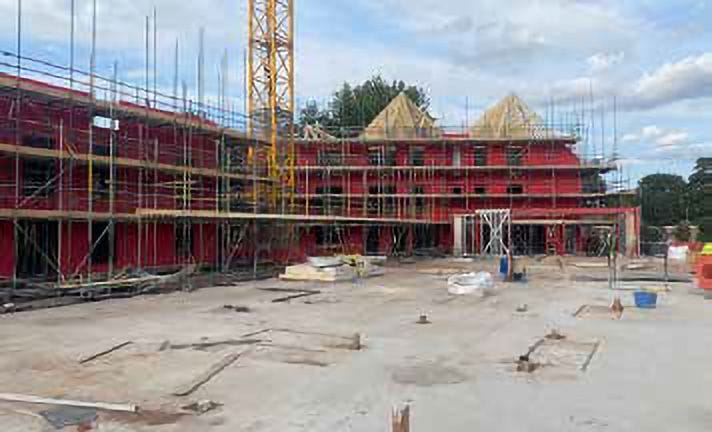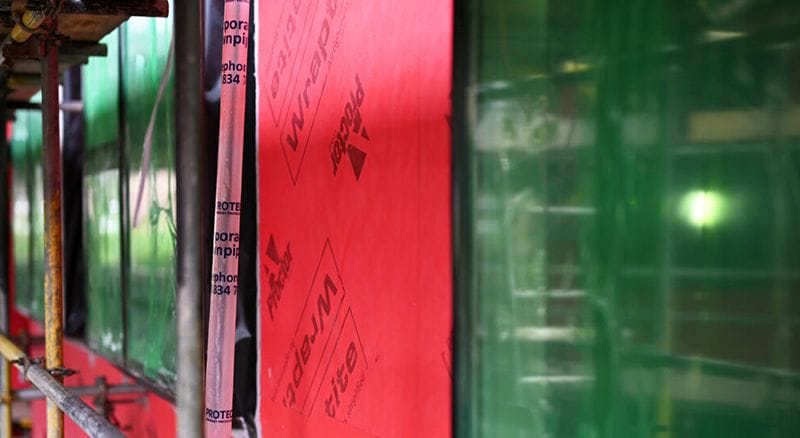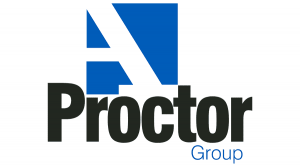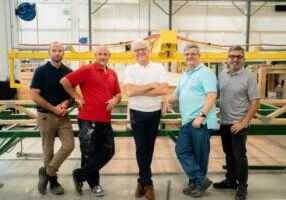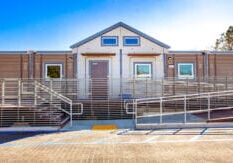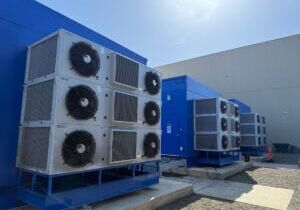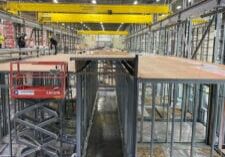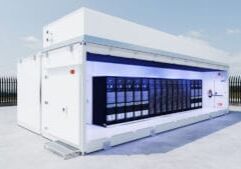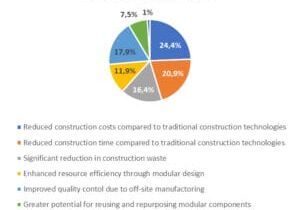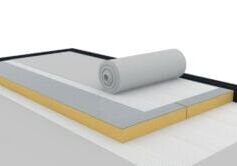Enhancing Building Performance with Wraptite
The Wraptite external air barrier system from the A. Proctor Group has enhanced the performance of a considerate inner-city development of retirement living apartments working in partnership with the market-leading Hadley Group.
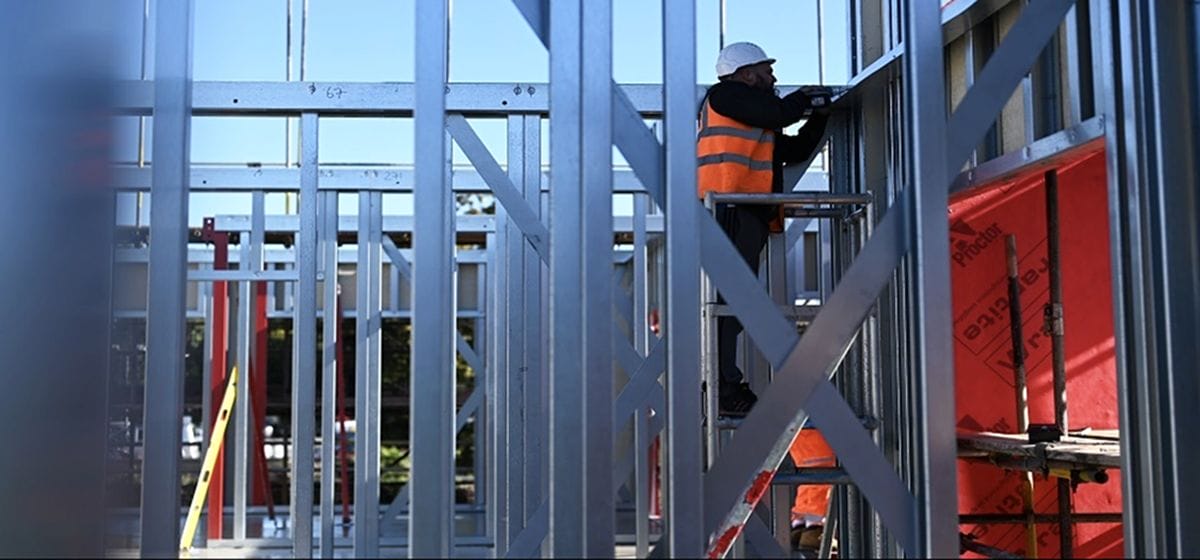
The Lichfield’s Bonds retirement living development for Pegasus Life consists of three apartment blocks in the heart of the cathedral city. Constructing on a compact site and nestled against local residents and businesses required a sensitive building approach and a considerate program design. An essential requirement for the client was ensuring that traffic was not disrupted and that the project positively contributed to the city.
The Wraptite external air barrier system from A. Proctor Group was installed in combination with the innovative, unique pre-panelized and fully load-bearing Hadley Frame offsite system, which is ideal for developments of low to medium rise structures.
The Hadley Frame system is designed to be installed off a structural concrete slab or transfer structure and provides a high strength-to-weight ratio and relative weight saving. In some cases, savings of 20-25% in weight can be achieved compared to traditional methods of construction.
Adam Salt, Business Development Manager of the A. Proctor Group explained, “one of the key benefits of installing the Wraptite air barrier system in the factory for the Hadley Group was minimal on-site disruption. Minimizing disruption on site provides significant benefits to local residents, particularly in the case of compact inner-city sites like the one at Lichfield.”
“The Wraptite air barrier system offers a safer and simplified membrane system. It provides a fully self-adhered vapor permeable air barrier certified by the BBA and combines the critical properties of vapor permeability and airtightness in one self-adhering membrane. The self-adhesive membrane is easily applied in the factory, bonded externally to the substrate, positioning the airtightness line away from the internal service penetrations ensuring a superior performance on the project.”
Joseph Sargeantson, Technical Director of the Hadley Group, explained. “The efficiency of the Hadley Frame system is significantly enhanced by the use of the Wraptite membrane from the A. Proctor Group. Combining Wraptite with Hadley Frame has enabled us to improve the air tightness and building performance and to achieve test results of 1.24m3/hr/m2.
“Wraptite is applied in the factory under controlled conditions for higher quality control and enables us to reduce on-site activity. This was particularly important on the compact site at Lichfield, where a key requirement was to minimize disruption in the local area.
“In addition to the enhanced air tightness performance, the self-adhesive design of Wraptite is ideally suited to offsite manufacture, easy and quick to apply, and provides valuable weatherproofing allowing follow-on trades to start to work much sooner.”
The superior airtightness performance of the Wraptite membrane from the A. Proctor Group delivers significant benefits to projects combining in-factory manufacture and on-site construction. The self-adhesive design ensures that the membrane is held firmly in place, even during transportation, maintaining the system’s quality from installation to build and completion.
More from Modular Advantage
Resia: Breaking All the Rules
Resia Manufacturing, a division of U.S.-based Resia, is now offering prefabricated bathroom and kitchen components to industry partners. Its hybrid fabrication facility produces more precise bathroom and kitchen components (modules) faster and at lower cost than traditional construction. Here’s how Resia Manufacturing does it.
How LINQ Modular Innovates to Bring Modular To The Market in the UAE and Beyond
LINQ Modular, with an office and three manufacturing facilities in Dubai, is a modular firm based in United Arab Emirates. The company is on a mission: to break open the housing and construction markets in the Gulf Cooperation Council (GCC) area with modular.
ModMax: Redefining Modular Construction with Confidence and Precision
ModMax was born out of frustration—frustration with five persistent pain points in modular construction: Permitting bottlenecks. Production delays. Rigid designs. Disconnect between “the office” and the field. Lack of transparency and communication.
LifeArk: Disaster-Resilient Housing from Recycled Plastic and 100-year-old Technology
Wee compares LifeArk’s housing units to Yeti coolers, as they are built similarly. Each component takes 15 to 20 minutes to manufacture, has an R-value of 40, and includes molded slots and chases for wiring, plumbing, fire sprinklers, and other utilities.
Building the Future of Modular Edge Infrastructure
The edge data center market is expanding rapidly, driven by the surge in AI workloads, IoT adoption, and the need for localized compute power. In these environments, sustainability, scalability, and reliability are non-negotiable. Cooling is among the most complex challenges for operators—and one of the most decisive factors in long-term success.
Accelerating Light-Gauge Steel Construction: A Semi-Automated Digital Workflow for Off-Site Projects
For construction professionals, the message is clear. By adopting semi-automation and digitalization, companies can deliver projects faster, more accurately, and more profitably, while also building stronger collaboration across teams. The approach is not about replacing people with machines, but about empowering people with better tools and processes.
Why Modular Data Centers Are Gaining Momentum
Artificial intelligence, high-performance computing, and edge applications push the limits of traditional “stick-built” data centers. They take years build, often struggle with high density workloads, and aren’t optimized for deployments near end users. Modular data center platforms are purpose-built to address these challenges, offering flexibility and scalability to adapt to evolving technologies, while opening new opportunities for the modular construction industry.
Supply Chain Innovation in Action: 5 Habits Every Modular Leader Should Practice
By applying these principles to supply chain practices — collaborative planning, strategic procurement, scenario modeling, digital tools, and transparent forecasting — construction leaders can build value chains that are not just efficient and agile, but truly innovative.
Exploring the Role of Modular Integrated Construction (MiC) in Advancing Circular City Principles – A Survey of Stakeholder Perspectives
The survey findings highlight the significant potential of Modular integrated Construction (MiC) in advancing the development of circular cities. By reducing costs, accelerating construction timelines, and minimizing waste generation, MiC offers a promising approach to sustainable urban development.
The Use of MS POLYMER™-Based Sealants and Adhesives in Modular Building
These products combine flexibility and elastic recovery with excellent adhesion to different substrates and have already shown their usefulness in traditional construction. Now it’s time for them to be put to use in the modular construction industry.

